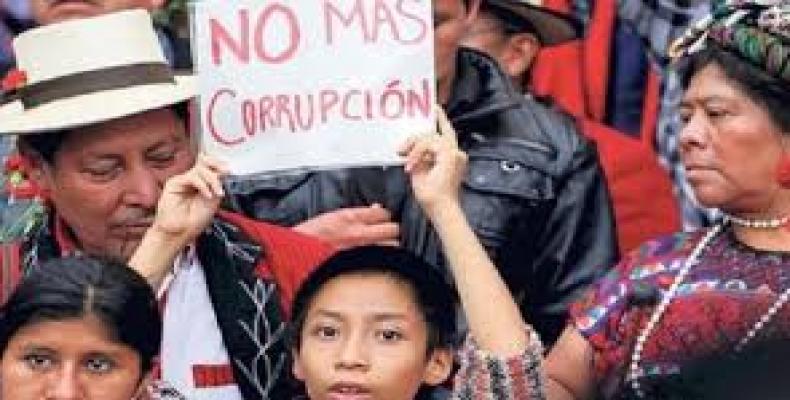The Director of Mexico's Comptroller General's Office, Eduardo Rovelo, has declared that corruption in his country is a structural disease. Impossible to eradicate, the most that authorities may do is to keep it under control, that is under “tolerable” limits.
This statement to the Mexican daily La Jornada, precisely coming from the man who heads the institution entrusted with the preservation of transparency in Government affairs could be appraised in two ways: one of them, a realistic appraisal by the institution of a disease that, according to his own words, has become part and parcel of the Mexican society, and therefore has no cure.
The other is just a simple and open declaration of defeat from a State already tired of fighting corruption and has decided to placidly march forward among trash and putrefaction: Something like a shout of save yourselves in a ship with more holes in its hull than the Titanic.
True enough, corruption is a giant disease rotting the hull of that Latin American country, although by no means it is exclusive of Mexico.
An example of this is the scandal staged by the Brazilian enterprise Odebrecht which spread around hundreds of thousands of dollars among politicians and public servants in exchange for juicy contracts, which left its managers huge profits.
Another example of enormous corruption was staged by the big US and European banks, which led the planet into one of the deepest and most dangerous financial and social crisis in many, many years and whose consequences are still being felt, especially in small nations that had nothing to do with such dirty affairs.
But let's go back to Mexico and to the statements by its Comptroller General, Mr. Robelo, that leave a huge obnoxious impression and deserve to be meditated on.
True enough, corruption in that nation has a huge social, moral and economic cost. Some analysts estimate that corruption accounts for the loss of up to ten percent of the Gross Domestic Product, something very serious in one of the most unequal societies on Earth.
From the political standpoint, this problem undermines the authority of public officials, and indeed it should not be easy for President Enrique Peña Nieto to explain to his fellow citizens that two State Governors from his own party were arrested for serious cases of corruption.
These criminals are Javier Duarte, Governor of the State of Veracrúz, captured in Guatemala; and Roberto Borge, of the State of Quintana Roo, arrested at Tocumen airport, in Panama City when he was ready to leave on a flight to Paris.
It might just be a coincidence, but it happens that one of the fugitives was hiding in Panama City's Trump Tower.
Now, let's get down to brass tacks. There are alternatives for eliminating and preventing corruption. These include the concept of Revolution, as defined by Fidel Castro in his historic speech on May 1, 2000.
These alternatives are difficult and hard, but they are there for anyone decided to resort to them.
“Revolution is to change all that must be changed... is to challenge powerful ruling forces within and outside the social and national environments. It is to defend the values in which one believes at the price of any sacrifice. It is never to lie nor violate ethical principles; it is the profound conviction that there is no force in the world capable of crushing the strength of the truth and of the ideas.”
We have no right to be pessimistic. Yes, it can be done. The hydra of corruption is not invulnerable!


